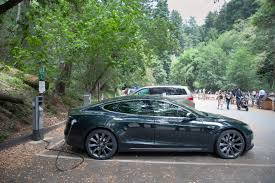I am an electrician; can I work on EV charge points? This is something I am often asked as the trend in electricians installing EV charge points for the electric vehicle industry and smart technology increases.

Welcome to the world of EV charge points. More and more people are buying full electric vehicles or hybrid vehicles and they need charging. It has created a whole new industry and revenue stream for electricians. But if you are an electrician how do you get into installing EV charge points?
There are a variety of electrical vehicle charging courses available which causes a little confusion because the two main courses available that many look at are the City and Guilds two-day course or a one-day course provided by training providers such as Certsure which isn’t City and Guilds. There are others too. I am often asked which one is better?
I have only sat the two-day City and Guilds course. Therefore, it is very difficult for me to comment on a course I haven’t attended. Many would naturally choose the shorter course because it requires less time out of work and costs less. However, I wouldn’t dismiss any course on length because the more you can learn, the better providing the training is delivered suitably. The longer the course, the more knowledge you are provided with, in theory.
What is important, is competence. EV charge point installations can be very dangerous. You can have very high charging currents and there is a risk of exporting the PME earth if not installed correctly.
You need to make sure you understand earthing and bonding relating to EV charge points and the general requirements of the installation such as correct selection of RCD’s, having dedicated circuits and isolation. Installing an EV charge point is not like installing your standard 13A socket and Electric Vehicles should not be plugged into a general use 13A socket outlet.
BS7671:2018 Section 722 Electric Vehicle Charging Installations shows the regulations regarding EV charge points and the IET have published the Code of Practice for Electric Vehicle Charging Equipment Installation – 3rd Edition. All information is within these technical documents but as ever, applied knowledge could be supplemented by sitting a course that demonstrates an understanding of such knowledge.
Sitting one of the courses does not assure competency. There are so many scenarios where BS7671 cannot be met depending on how EV charge points are installed and located. It is important to know how they should be installed to meet BS7671.
Driving earth rods into the ground shouldn’t be carried out by someone who isn’t competent to do so either. It is possible to damage services such as gas pipes, electrical cables, water pipes and waste pipes. If you damage services underground, it will be very costly and sometimes dangerous. You might also want to check that your insurance covers such activities.
To become OLEV registered where you can provide clients with government grants for home charge points and workplace charge points, most manufacturers will require you to sit a course of some description such as the two previously mentioned to become approved installers. You cannot become approved installers under the OLEV scheme without manufacturer approval. Some EV charge point manufacturers have in house training courses on working on their equipment. It Is important to build relationships with EV charge point manufacturers.
Becoming OLEV registered can be attractive because you will be listed on the government website as an installer so clients can search for you. Having some money off the install is a perk of owning carbon emission ‘friendly’ vehicle. If you are looking to become OLEV registered, you should be aware that the documentation is very in depth, but easy once you have processes in place.
Once you are approved by OLEV, you must provide monthly reports to the scheme and when you carry out an install, there is a specific documentation process so you can claim back the government grant. If you do not do this, you won’t get paid.
Is there much money in installing EV charge points? There can be if you are efficient and reduce your overheads.
You will always find electricians installing EV charge points who haven’t sat any course or don’t have any approvals, but these electricians are at risk of breaching the Electricity At Work Regulations 1989 (EAWR 1989) which is a statutory requirement. They are potentially installing EV installations which do not meet BS7671 or EAWR 1989 which puts the customer at risk. This is an issue that is common in the electrical industry because it drives down costs and increases risk of safety.
I advise that if you are installing or thinking about installing EV charge points, you ensure your team are competent in doing so or risk breaching electrical and health and safety legislation which is never a great outcome. Once competent, enjoy the ever-growing industry of Electric Vehicles.
Written by Dan Jackson AKA Dans the Engineer
Disclaimer: All content within this blog post are the opinion only of Dans the Engineer and should you choose to take any of the advice or information given, we accept no responsibility for any loss you may occur.